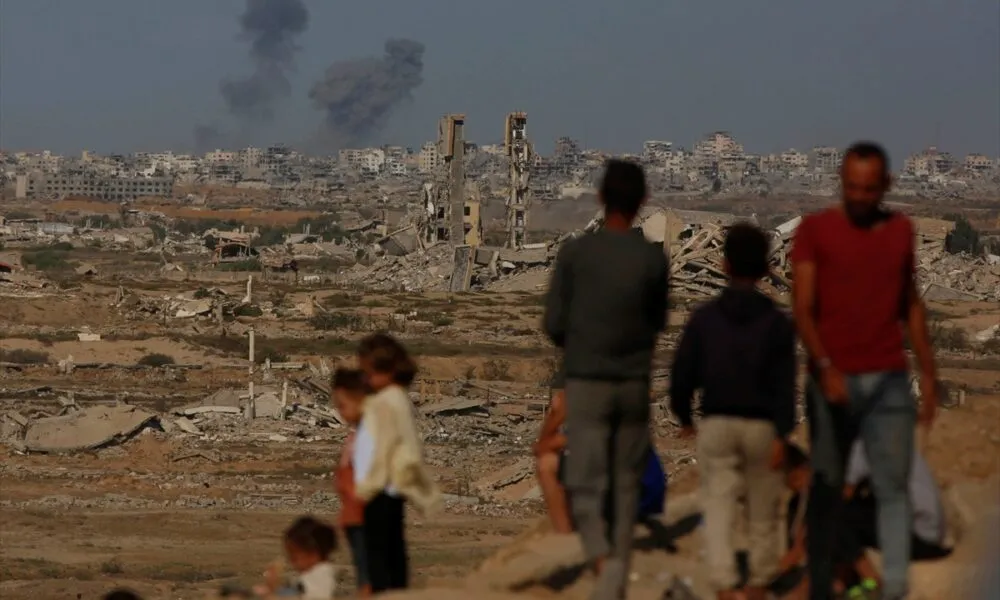Ceasefire negotiations between Israel and Hamas continued for a third day on Tuesday in the Egyptian resort of Sharm el-Sheikh, with indirect contacts mediated by Egypt and joined by senior delegations from Qatar, Turkey and the United States. Qatar’s prime minister is expected to attend on Wednesday, a move intended to add political weight to the effort.
Talks are built around a 20-point proposal tabled last month by US President Donald Trump that couples a temporary halt in fighting with the release of hostages and expanded humanitarian access. Egypt, a traditional go-between in Israel-Palestinian crises, is working in concert with regional and international partners to shape a broader framework.
From the Oval Office on Tuesday, Trump said there is “a real chance we get somewhere,” noting that US negotiators are engaged on the ground. He said Washington wants the immediate release of hostages and pledged the US would “do everything” to ensure compliance should a truce be reached. The White House’s special envoy for the Middle East, Steve Witkoff, is due to join Wednesday’s session, according to Egypt’s foreign minister, Badr Abdelatty, who described Trump himself as the key guarantor if an agreement is struck.
Qatar confirmed that Prime Minister Sheikh Mohammed bin Abdulrahman Al Thani will participate, while Turkish state media reported that intelligence chief Ibrahim Kalin will lead Ankara’s delegation. On the Palestinian side, Hamas negotiator Khalil al-Hayya said the group is seeking “guarantees from President Trump that the war will end definitively.”
According to officials, the Trump plan’s core planks include a ceasefire, the release of all hostages, the disarmament of Hamas and a phased withdrawal of Israeli forces from Gaza. Both Hamas and Israel have responded positively in principle, paving the way for indirect talks in Egypt from Monday. A Palestinian source close to Hamas’s team said Tuesday’s session examined Israeli-presented maps for troop pullbacks as well as timelines and modalities for exchanging hostages and detainees.
The diplomacy unfolds against the backdrop of the second anniversary of Hamas’s 7 October attack, which triggered the war. The assault, carried out as the Jewish festival of Sukkot ended, was the deadliest in Israel’s history, leaving 1,219 people dead, mostly civilians, according to an AFP tally based on official Israeli figures. Another 251 people were abducted to Gaza; the Israeli military says 47 remain captive, including 25 confirmed dead. Much of Gaza has since been devastated, the UN warns of famine conditions, and the families of Israeli hostages continue to press for a deal.
International pressure has intensified on both sides. A UN report last month accused Israel of genocide in Gaza, while human-rights groups accuse Hamas of war crimes and crimes against humanity stemming from the 7 October attack. Both parties reject the allegations.
